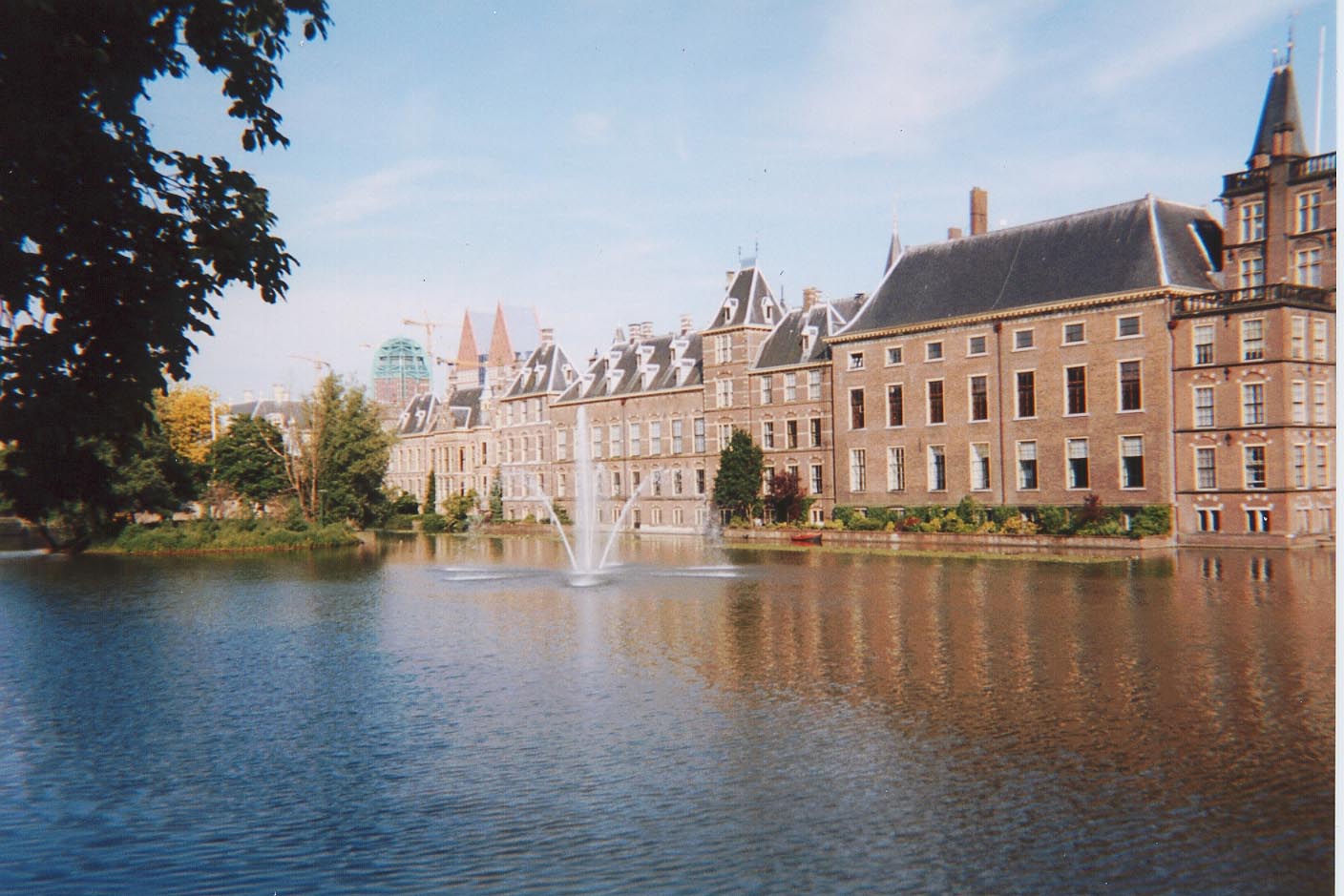|
Making
the European Connection
Valuable
contacts were made, and many insights gained, for two IARF
representatives who attended a seminar on religious freedom,
which was held in the Hague, Netherlands on 26 June. The seminar,
titled "Freedom of Religion or Belief in the OSCE Region:
Challenges to Law and Practice" was a joint initiative
of the Romanian Chairman-in-Office of the Organisation for
Security and Cooperation in Europe (OSCE) and the Government
of the Netherlands. IARF President Eimert van Herwijnen, as
well as this author, joined over 200 individuals representing
the region’s governments, international organisations
and non-governmental organisations (NGO’s) to discuss
some of the complex issues surrounding freedom of religion
and belief in Europe.

The
Value of Religious Freedom:
Opening
remarks by the Dutch and Romanian Ministers of Foreign Affairs
(Jozias van Aartsen and Mircea Dan Geoana) and the former
Norwegian Minister for Human Rights (Hilde Johnson) cited
some of the fears associated with religious extremism, proselytism,
and religion being used to foster conflict. However, the speakers
acknowledged the powerful and positive force that religion
could play in society. In an era when political ideologies
based on material needs have failed society, said Johnson,
we need to turn to a human rights framework based on moral
values. Unfortunately, she said, man’s spiritual nature
is still repressed in many places. It was this repression
that was largely the subject of the conference which was held
at the Dutch Government’s impressive Hall of Knights.
Following opening remarks, participants selected one of two
working sessions which allowed for greater dialogue on specific
issues. Details on the sessions below come from final reports
submitted by conference rapporteurs.
Seeking
Registration:
Working
Session 1 of the conference focused on the recognition and
registration of religious and belief communities. While participants
at this session agreed that registration should not be a prerequisite
for the enjoyment of freedom of religion or belief, it was
also recognised that states often have requirements necessary
to allow religious groups to benefit from certain privileges
or exemptions. If registration is legitimately required, noted
the final report, certain criteria (such as the size of the
community and property ownership) need to be examined. Problems
arise, however, when registration is used as a "control
device" rather than in a facilitative way to allow religious
communities to exercise their rights to freedom of religion
or belief.
Participants
at this session acknowledged that there was a need for more
information both related to the problems faced by authorities
and by communities seeking registration. Various recommendations
were put forward on ways to improve such communications. Valuable
roles could be played by national committees, agreed participants,
in bringing representatives of the faith and belief communities
together to evaluate the potential impact of any legislation
being considered. The final report of the working session
noted, "Where they exist, registration laws must apply
in law and be applied in an open, transparent and non-discriminatory
fashion, aimed at facilitating the enjoyment of this basic
human right."
Examining
Permissible Restrictions:
Working
Session 2 of the conference was devoted to a discussion of
permissible restrictions on the activities of religious and
belief communities. Although non-interference with a person’s
internal beliefs is absolute, international human rights instruments
have defined circumstances in which governments may limit
external manifestations of these beliefs. Professor Manfred
Nowak, the Director of the Ludwig Boltzman Institute of Human
Rights, was on hand at this session to review the many legal
dimensions of such limitations. He noted that, for a government’s
limitation to be proper, it must ensure the protection of
public safety, order, health, morals, or the fundamental rights
and freedoms of others. Such restrictions, however, should
be proportionate to the harm that a government might wish
to prevent and should not be excessively broad.
Some
participants at this session felt that several states in the
region were not complying with OSCE standards in that restrictions
were applied to faith and belief communities in a discriminatory
manner. In some cases, for example, established traditional
religions have been favoured over new religious groups and
movements. A growing multiculturalism in Europe was cited
as one of the factors contributing to such antagonism. Participants
recommended that OSCE’s Advisory Panel of Experts on
Freedom of Religion or Belief convene a special session to
"analyse and elaborate on OSCE standards pertaining to
the permissible governmental limitations on freedom of religion
or belief," including more work on topics such as proselytism
and conscientious objection.
In
Conclusion:
The
concluding seminar statement noted that both working groups
meeting at the Hague called for more exchange of information
on jurisprudence and best practices at national and international
levels.
Overall,
participants in general, and the IARF team in particular,
came away from the convocation with a greater understanding
of some of the legal difficulties and challenges posed by
manifestations of freedom of religion or belief in the OSCE
region. IARF materials were distributed at the conference
and a special mailing subsequently sent to select participants.
As OSCE gatherings allow for interventions by NGO participants,
IARF President Eimert van Herwijnen commented on IARF’s
intended work on a voluntary code of practice for all religions
or belief communities. The connections made at this conference
will be valuable to IARF’s ongoing work on the development
of such a code.
Zarrín
T Caldwell
|

